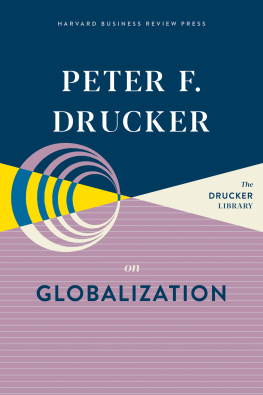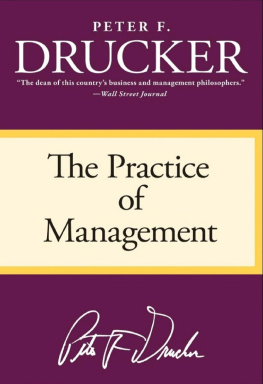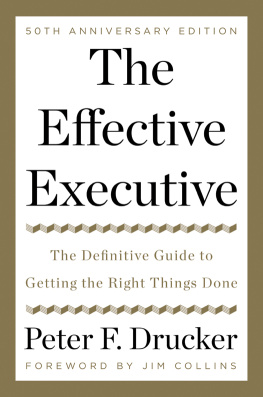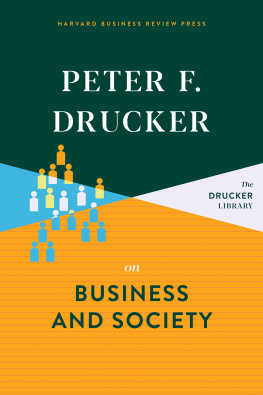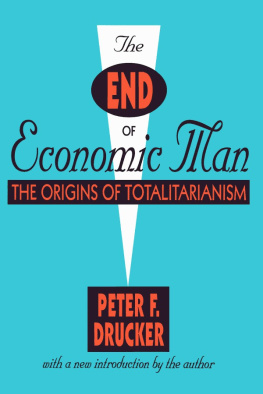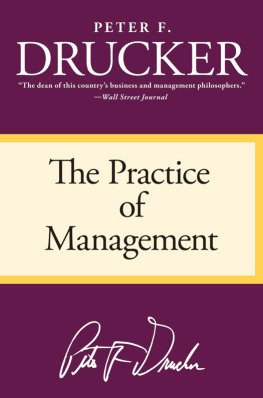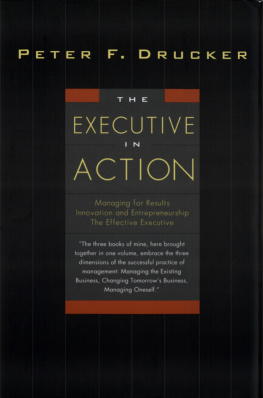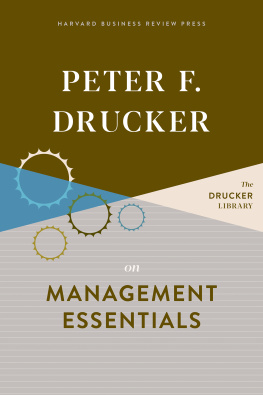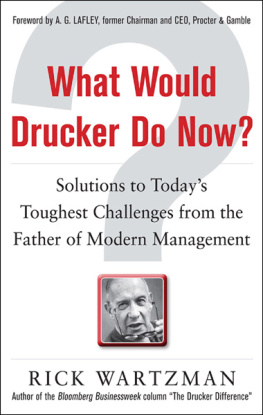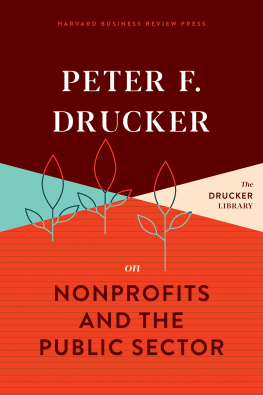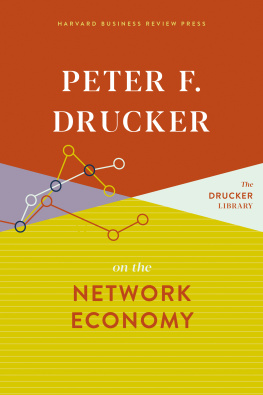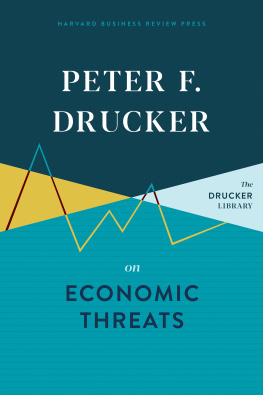This book is one of several volumes in the Drucker Library published by Harvard Business Review Press.
The essays in this volume were written between 1982 and 1986. When Peter Drucker collected them for this volume in 1986, he resisted, as he explained in an earlier volume of essays, the temptation to rewrite, contending that it was only fair to let the reader decide how well the authors opinions, prejudices, and predictions have stood the test of time.
Some fifty years later, modern readers may find Druckers language at times dated or inappropriate and some of his arguments controversial or utterly wrongheaded. But as editors we too have chosen to resist the urge to tamper with the original texts, for we did not feel confident we could always tell the difference between updating and censorship. Further, we believe that one of the many delights of these essays for current readers, who enjoy the advantage of complete hindsight extending over the entire period in which Drucker made predictions, is in judging how remarkably prescient and applicable so much of this thinking remains today.
PREFACE
The Future Is Being Shaped Today
The thirty-seven chapters in this volume: an Interview, an Afterword, and thirty-five essays and articles, cover a broad range of subjects. Yet they were planned from the beginning to be published eventually in one volume and as variations on one unifying theme: the challenges of tomorrow that face the executive today. If there is one single postulate underlying these pieces, it is that the future is being made by totally anonymous people, a CEO here, a marketing manager there, a training director or a comptroller yonder doing mundane jobs: building a management team; developing a new pricing strategy; changing a training program so that it matches people with different educational backgrounds to new technologies; or working out a new cost-accounting analysis to find out whether automating the welding line will pay off.
This, after all, is the lesson of this century. It has been a century of unprecedented disasters and cataclysms: two world wars, a Stalin, a Hitler, a Mao, and scores of lesser but no less murderous villains. Indeed we packed into every decade as much history as one usually finds in a century; and little of it was benign. Yet most of this world, and especially the developed world, somehow managed not only to recover from the catastrophes again and again but to regain direction and momentumeconomic, social, even political. The main reason was that ordinary people, people running the everyday concerns of everyday businesses and institutions, took responsibility and kept on building for tomorrow while all around them the world came crashing down. Thus tomorrow is being shaped today.
And what kind of tomorrow it will be thus depends heavily on the knowledge, insight, foresight, and competence of the decision makers of today, and especially of the decision makers in our institutions, that is, on executives. Yet these executives are busy people. Every one of them is already fully occupied with the daily crisisand the daily crisis is indeed the one absolutely predictable event in the working day of the executive. To enable these busy people to see and to understand the long-range implications and impacts of their immediate, everyday, urgent actions and decisions is thus the purpose to which every one of the pieces in this volume addresses itself.
There is a second theme that runs through these thirty-seven diverse and different articles and essays: Change is opportunity. Every one of the pieces in this volume looks at changes. Some are profound and major ones, such as the impact of information on organization, the meaning of the U.S. entrepreneurial surge in the last decade, or the problems created by the success of management. Other changes are perhaps ephemeral and transitorythough for that matter no less importantfor example, the mismatch between traditional jobs and the expectations and qualifications of a new, young, and educated work force. Every one of these changes might be seen as a threat and is indeed seen as such by a good many executives. Every one needs to be seen and exploited as an opportunityfor doing something different, for doing something new, and, above all, for doing something better, something more productive, something more profitable. This volume therefore aims not only at providing knowledge, insight, foresight, and competence; it aims at creating vision.
Peter F. Drucker
Claremont, California
Summer 1986
INTERVIEW

A Talk with a Wide-Ranging Mind
Q: The last book of yours was the one in which you wrote about the deliberateness of the innovation process. Has there been any deliberateness in your own life? Was there a plan for Peter Drucker?
A: In retrospect, my life makes sense, but not in prospect, no. I was probably thirty before I had the foggiest notion where I belonged. For ten or twelve years before that I had experimented, not by design but by accident. I knew, even as a little boy, that I didnt want to stay in Austria, and I knew that I didnt want to waste four years going to a university. So I had my father get me a job as far away as one could go and as far away from anything that I was eventually headed for. I was an apprentice clerk in an export house. Then I worked in a small bank in Frankfurt. Its a job I got because I was bilingual in English and German. That was October 1929. The stock market crashed, and I was the last in and the first out. I needed a job and got one at the local newspaper. It was a good education, I must say.

